240 episodes


This week Brendan chats with Dr. Margaret Docker https://mdockerlab.com/ about her career working on sex determination in Sea Lamprey that has spanned two and a half decades, the challenges faced in uncovering this mystery, and the recent advances that put the goal in sight. In addition, they chat about an upcoming "Special Issue on the Underappreciated Native Fishes of North America and their Management" in the Environmental Biology of Fishes journal, which Dr. Docker is a co-editor. Check out the special issue here https://link.springer.com/collections/jjggiicibc, along with the articles already published. Submissions will be open until April 30th, so be sure to get in contact with Dr. Docker as soon as possible if you're interested. Main point: "All biodiversity matters, not just fish with a commercial or recreational value". Margaret's social media handle: @MargaretDocker Brendan's social media handle: @BrendanSpearin Get in touch with us! The Fisheries Podcast is on Facebook, Twitter, Instagram, Threads, and Bluesky: @FisheriesPod Become a Patron of the show: https://www.patreon.com/FisheriesPodcast Buy podcast shirts, hoodies, stickers, and more: https://teespring.com/stores/the-fisheries-podcast-fan-shop Thanks as always to Andrew Gialanella for the fantastic intro/outro music. The Fisheries Podcast is a completely independent podcast, not affiliated with a larger organization or entity. Reference to any specific product or entity does not constitute an endorsement or recommendation by the podcast. The views expressed by guests are their own and their appearance on the program does not imply an endorsement of them or any entity they represent. Views and opinions expressed by the hosts are those of that individual and do not necessarily reflect the view of any entity with those individuals are affiliated in other capacities (such as employers).


This week Katelyn chats with Heather Bauer Reid, a Ph.D. student at Trent University. Heather talks about the interpopulation variation of aquatic species in response to temperature changes, her research centered around the intraspecific variation that exists within fish species, and her experiences at Friday Harbor Laboratories. Main point: Don’t ignore the variation that can exist within a species. Get in touch with us! The Fisheries Podcast is on Facebook, Twitter, and Instagram: @FisheriesPod Become a Patron of the show: https://www.patreon.com/FisheriesPodcast Buy podcast shirts, hoodies, stickers, and more: https://teespring.com/stores/the-fisheries-podcast-fan-shop Thanks as always to Andrew Gialanella for the fantastic intro/outro music. The Fisheries Podcast is a completely independent podcast, not affiliated with a larger organization or entity. Reference to any specific product or entity does not constitute an endorsement or recommendation by the podcast. The views expressed by guests are their own and their appearance on the program does not imply an endorsement of them or any entity they represent. Views and opinions expressed by the hosts are those of that individual and do not necessarily reflect the view of any entity with those individuals are affiliated in other capacities (such as employers).
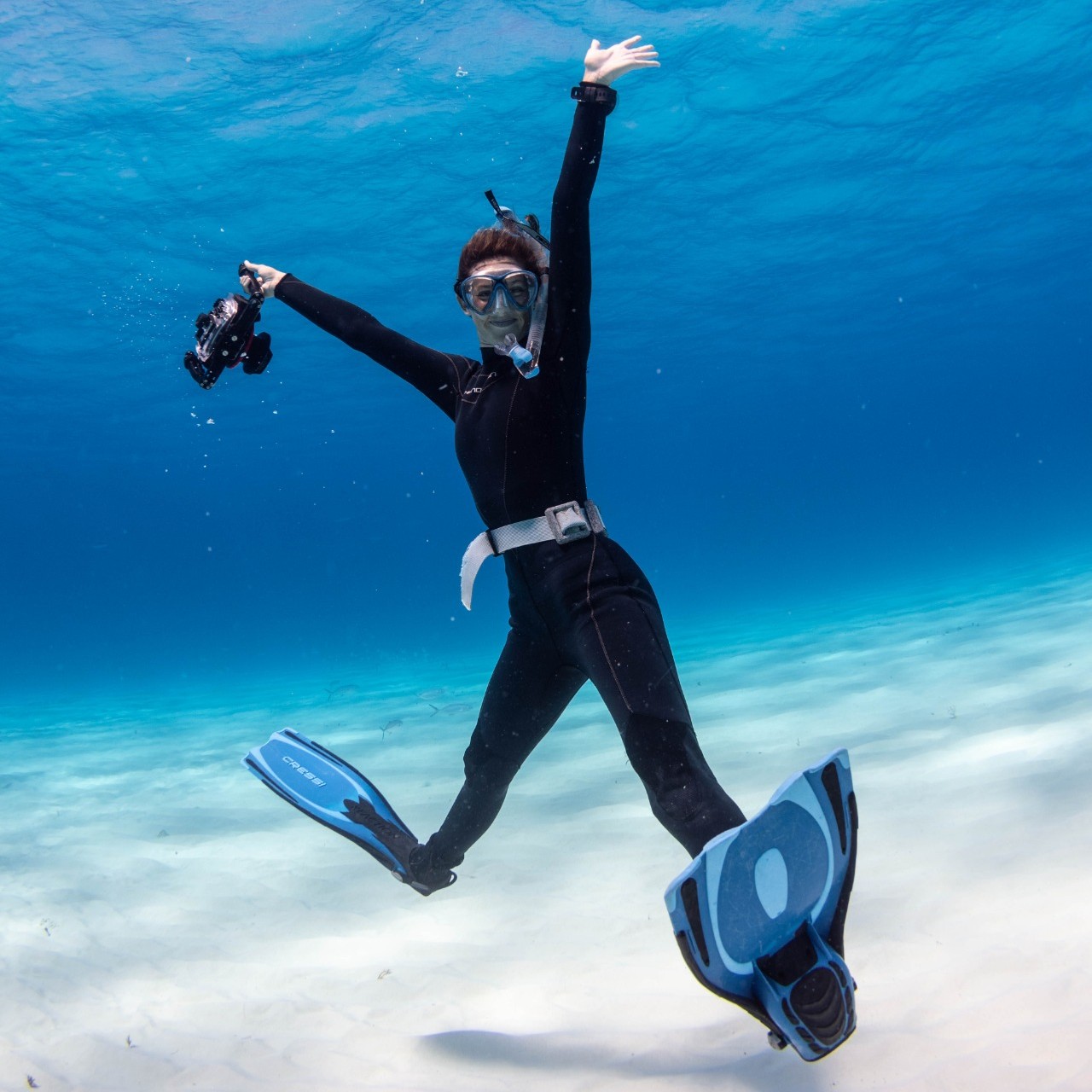

This week, Elise (IG: @elise_the_mermaid) chats with her friend and colleague Baylie Fadool (IG: @baylie_amberr). They discuss Baylie's many roles with the Bimini Shark Lab, her brand new nurse shark publication which spans 17 years of data, the importance of age and growth studies, how science and art overlap, and more! Main point: You belong here! Cover photo credit: Chelle Blais (@chelleblaisphoto on IG) Get in touch with us! The Fisheries Podcast is on Facebook, Twitter, and Instagram: @FisheriesPod Become a Patron of the show: https://www.patreon.com/FisheriesPodcast Buy podcast shirts, hoodies, stickers, and more: https://teespring.com/stores/the-fisheries- podcast-fan-shop Thanks as always to Andrew Gialanella for the fantastic intro/outro music. The Fisheries Podcast is a completely independent podcast, not affiliated with a larger organization or entity. Reference to any specific product or entity does not constitute an endorsement or recommendation by the podcast. The views expressed by guests are their own and their appearance on the program does not imply an endorsement of them or any entity they represent. Views and opinions expressed by the hosts are those of that individual and do not necessarily reflect the view of any entity that those individuals are affiliated in other capacities (such as employers).


This week Kadie chats with Niall Clancy about the recently released book, Keeping the Last Best Fishery: advice from Montana's biologists to the next generation, which is a series of interviews that he edited and published. Throughout this conversation, we talk about how this book came about, some key takeaways, and Niall's favorite piece of advice he gathered from these interviews. And, while the book is focused on Montana's fisheries biologists, the advice is broadly applicable to states outside Montana and fields besides fisheries. Main point: We should care more about non-game fish. Check out a free online version of the book here https://researchgate.net/publication/377530705_Keeping_the_Last_Best_Fishery_advice_from_Montana. You can purchase a physical copy of the book via the publisher https://store.bookbaby.com/book/last-best-fishery. The cover art for this book was done by T. David Ritter, you can find more of his work here https://www.rittercraft.com/. If you'd like to get in touch with Niall, you can get in contact via his website: niallclancy.org https://niallclancy.org/, or email him at Niall.Clancy@uwyo.edu. Get in touch with us! The Fisheries Podcast is on Facebook, Twitter, and Instagram: @FisheriesPod Become a Patron of the show: https://www.patreon.com/FisheriesPodcast Buy podcast shirts, hoodies, stickers, and more: https://teespring.com/stores/the-fisheries-podcast-fan-shop Thanks as always to Andrew Gialanella for the fantastic intro/outro music. The Fisheries Podcast is a completely independent podcast, not affiliated with a larger organization or entity. Reference to any specific product or entity does not constitute an endorsement or recommendation by the podcast. The views expressed by guests are their own and their appearance on the program does not imply an endorsement of them or any entity they represent. Views and opinions expressed by the hosts are those of that individual and do not necessarily reflect the view of any entity with those individuals are affiliated in other capacities (such as employers).


Episode 250! This week, Preston catches up with Fisheries Podcast founder and original host, Nick Kramer. They discuss two major milestones that the podcast recently achieved in recent months. Nick also recaps a trophy carp management survey that he recently completed and an upcoming project to create a greenhouse for growing aquatic plants. Main point: "Share your story." Nick's social media handle: @nicktalurus Get in touch with us! The Fisheries Podcast is on Facebook, Twitter, Instagram, Threads, and Bluesky: @FisheriesPod Become a Patron of the show: https://www.patreon.com/FisheriesPodcast Buy podcast shirts, hoodies, stickers, and more: https://teespring.com/stores/the-fisheries-podcast-fan-shop Thanks as always to Andrew Gialanella for the fantastic intro/outro music. The Fisheries Podcast is a completely independent podcast, not affiliated with a larger organization or entity. Reference to any specific product or entity does not constitute an endorsement or recommendation by the podcast. The views expressed by guests are their own and their appearance on the program does not imply an endorsement of them or any entity they represent. Views and opinions expressed by the hosts are those of that individual and do not necessarily reflect the view of any entity with those individuals are affiliated in other capacities (such as employers).


In the second part of this series on the 2nd Vice President of AFS candidates, Kadie interviews Dr. Marlis Douglas! Marlis is a Professor of Biodiversity Conservation at the University of Arkansas. Throughout the interview, we talk about Marlis' career path, how she came to co-author The Narrative Gym For Science https://www.amazon.com/Narrative-Science-Graduate-Students-Postdocs-ebook/dp/B0BBLBR69T, and why she is running for the 2nd Vice President of AFS. If you haven't already, be sure to go back and listen to Part 1 of this series with Lori Martin! Main point: Have respect for others. If you'd like to get in touch with Marlis, you can reach her at her website: https://marlisrdouglas.org/ Remember, only AFS Members can cast a vote for their favorite candidate, so now would be a great time to join if you haven’t already! For membership details, click the link below: https://fisheries.org/membership/join/ Get in touch with us! The Fisheries Podcast is on most social media platforms: @FisheriesPod Become a Patron of the show: https://www.patreon.com/FisheriesPodcast Buy podcast shirts, hoodies, stickers, and more: https://teespring.com/stores/the-fisheries-podcast-fan-shop Thanks as always to Andrew Gialanella for the fantastic intro/outro music. The Fisheries Podcast is a completely independent podcast, not affiliated with a larger organization or entity. Reference to any specific product or entity does not constitute an endorsement or recommendation by the podcast. The views expressed by guests are their own and their appearance on the program does not imply an endorsement of them or any entity they represent. Views and opinions expressed by the hosts are those of that individual and do not necessarily reflect the view of any entity with those individuals are affiliated in other capacities (such as employers).


In the first part of this series, Elise (IG: @elise_the_mermaid) interviews Lori Martin, one of two candidates running for the position of 2nd Vice President of the American Fisheries Society this year. Listen in to hear about Lori's long career in aquatic biology which includes electrofishing in high school, her "retirement", and her career-long affiliation with the American Fisheries Society. Main point: Respect nature and each other's perspectives. Don't forget to check out Part 2 of this series! Voting will be taking place ________. Remember, only AFS Members can cast a vote for their favorite candidate, so now would be a great time to join if you haven’t already! For membership details, click the link below: https://fisheries.org/membership/join/ Get in touch with us! The Fisheries Podcast is on Facebook, Twitter, and Instagram: @FisheriesPod Become a Patron of the show: https://www.patreon.com/FisheriesPodcast Buy podcast shirts, hoodies, stickers, and more: https://teespring.com/stores/the-fisheries- podcast-fan-shop Thanks as always to Andrew Gialanella for the fantastic intro/outro music. The Fisheries Podcast is a completely independent podcast, not affiliated with a larger organization or entity. Reference to any specific product or entity does not constitute an endorsement or recommendation by the podcast. The views expressed by guests are their own and their appearance on the program does not imply an endorsement of them or any entity they represent. Views and opinions expressed by the hosts are those of that individual and do not necessarily reflect the view of any entity with those individuals are affiliated in other capacities (such as employers).
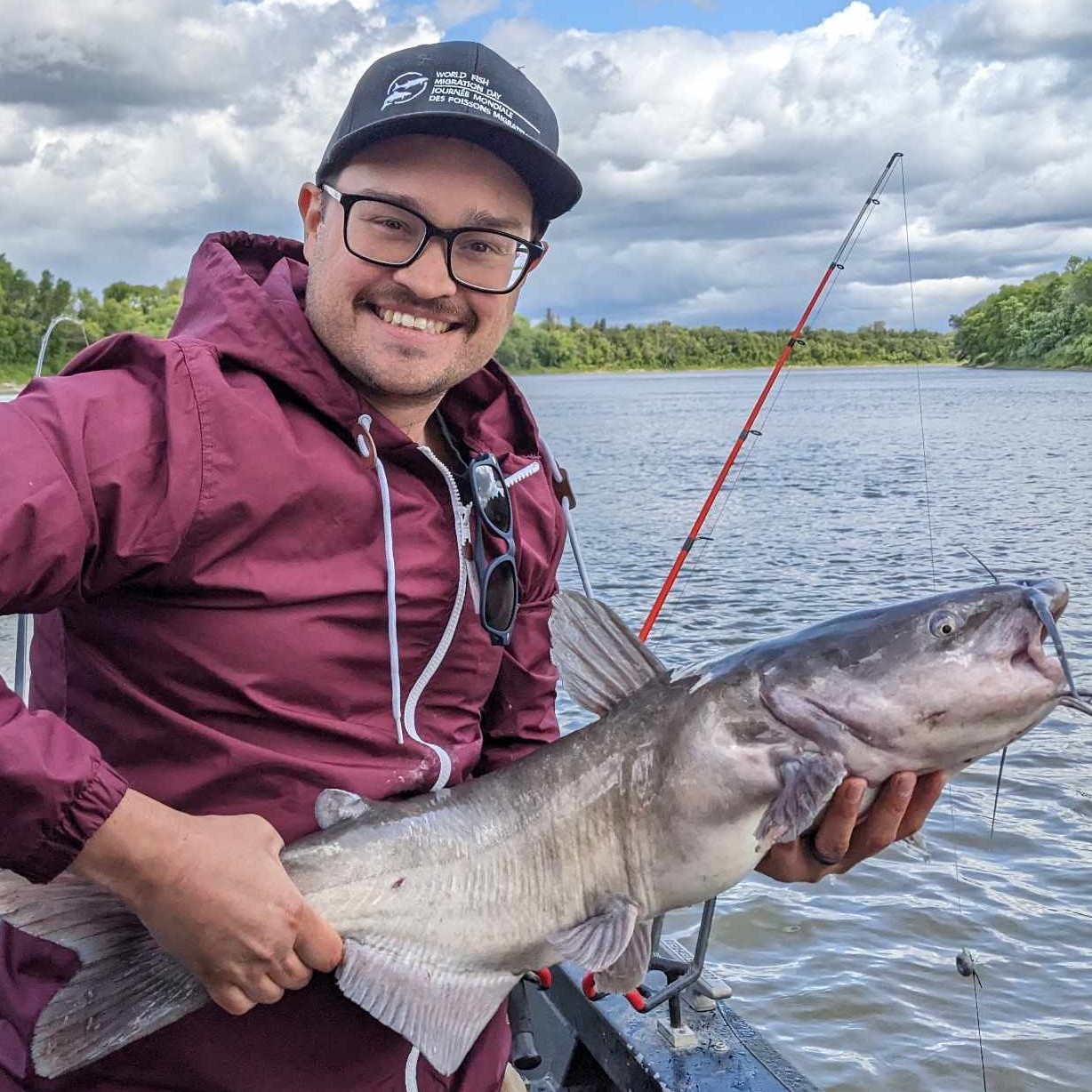

This week Kadie chats with new Fisheries Podcast co-host, Brendan Spearin. We cover his (self-described) idiosyncratic career, his love of maps, how he landed in his current role working with aquatic invasive species (AIS), and why he decided to volunteer as a host of the Fisheries Podcast! Check it out! Main point: Our aquatic resources and natural world are a shared resource and shared responsibility. If you'd like to get in touch with Brendan, you can find him on LinkedIn https://www.linkedin.com/in/brendanspearin/ or Twitter @BrendanSpearin https://twitter.com/BrendanSpearin Get in touch with us! The Fisheries Podcast is on Facebook, Twitter, and Instagram: @FisheriesPod Become a Patron of the show: https://www.patreon.com/FisheriesPodcast Buy podcast shirts, hoodies, stickers, and more: https://teespring.com/stores/the-fisheries-podcast-fan-shop Thanks as always to Andrew Gialanella for the fantastic intro/outro music. The Fisheries Podcast is a completely independent podcast, not affiliated with a larger organization or entity. Reference to any specific product or entity does not constitute an endorsement or recommendation by the podcast. The views expressed by guests are their own and their appearance on the program does not imply an endorsement of them or any entity they represent. Views and opinions expressed by the hosts are those of that individual and do not necessarily reflect the view of any entity with those individuals are affiliated in other capacities (such as employers).


This week, Preston catches up with Dr. Don Orth, who recently retired as a professor from Virginia Tech. They talk about Don's numerous research topics throughout his career, how teaching changed during his time at VT, two recently published books, and some advice for current and future fisheries professionals. Main point: "Pay attention, be astonished, and talk about it." Don's email: donald.orth@gmail.com Get in touch with us! The Fisheries Podcast is on Facebook, Twitter, Instagram, Threads, and Bluesky: @FisheriesPod Become a Patron of the show: https://www.patreon.com/FisheriesPodcast Buy podcast shirts, hoodies, stickers, and more: https://teespring.com/stores/the-fisheries-podcast-fan-shop Thanks as always to Andrew Gialanella for the fantastic intro/outro music. The Fisheries Podcast is a completely independent podcast, not affiliated with a larger organization or entity. Reference to any specific product or entity does not constitute an endorsement or recommendation by the podcast. The views expressed by guests are their own and their appearance on the program does not imply an endorsement of them or any entity they represent. Views and opinions expressed by the hosts are those of that individual and do not necessarily reflect the view of any entity with those individuals are affiliated in other capacities (such as employers).


This week Katelyn chats with Christian Bihun, a Ph.D. candidate at Trent University. Christian talks about his experiences working at a walleye hatchery, his research aimed at refining the walleye bioenergetics model in Great Lakes populations, and the influence of climate change on female fish. https://www.rabylab.com/people Get in touch with us! The Fisheries Podcast is on Facebook, Twitter, and Instagram: @FisheriesPod Become a Patron of the show: https://www.patreon.com/FisheriesPodcast Buy podcast shirts, hoodies, stickers, and more: https://teespring.com/stores/the-fisheries-podcast-fan-shop Thanks as always to Andrew Gialanella for the fantastic intro/outro music. The Fisheries Podcast is a completely independent podcast, not affiliated with a larger organization or entity. Reference to any specific product or entity does not constitute an endorsement or recommendation by the podcast. The views expressed by guests are their own and their appearance on the program does not imply an endorsement of them or any entity they represent. Views and opinions expressed by the hosts are those of that individual and do not necessarily reflect the view of any entity with those individuals are affiliated in other capacities (such as employers).


This week, Elise (IG: @elise_the_mermaid) chats with Dani Escontrela, a PhD candidate studying the cushion star and other corallivores at the University of Hawaii Manoa. They talk about Dani's work with the Peace Corps, the relationships between coral reefs and fisheries, and the many challenges of studying corallivory - including keeping sneaky cushion stars in their cages! Main point: Choose good leaders at all levels Dani's website: https://www.daniescontrela.com/ Get in touch with us! The Fisheries Podcast is on Facebook, Twitter, and Instagram: @FisheriesPod Become a Patron of the show: https://www.patreon.com/FisheriesPodcast Buy podcast shirts, hoodies, stickers, and more: https://teespring.com/stores/the-fisheries- podcast-fan-shop Thanks as always to Andrew Gialanella for the fantastic intro/outro music. The Fisheries Podcast is a completely independent podcast, not affiliated with a larger organization or entity. Reference to any specific product or entity does not constitute an endorsement or recommendation by the podcast. The views expressed by guests are their own and their appearance on the program does not imply an endorsement of them or any entity they represent. Views and opinions expressed by the hosts are those of that individual and do not necessarily reflect the view of any entity with those individuals are affiliated in other capacities (such as employers).
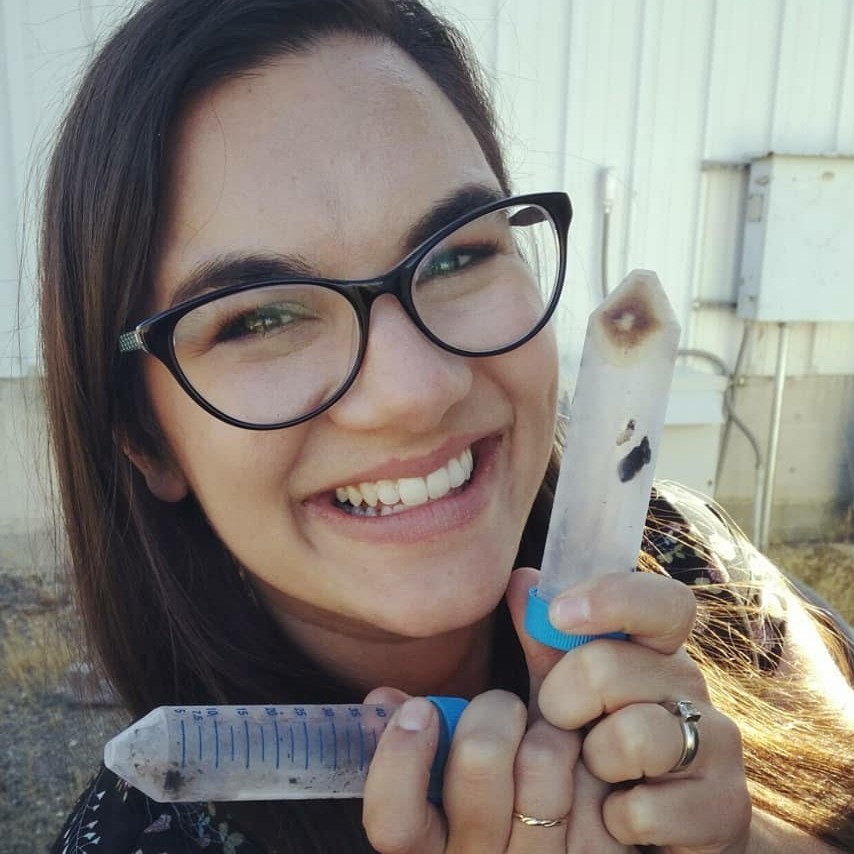

This week Kadie chats with Miranda Bell Tilcock about how to use fish eye lens to look at habitat use and diets, her work as a senior environmental consultant for the Delta Stewardship Council, how she balanced being a mom with finishing her master’s and more! Check it out! Main point: Don’t be too hard on yourself! If you’d like to get in touch with Miranda or seek out her fish eyeball expertise, you can email her at mirbell@ucdavis.edu or find her on Twitter @eyeballMir. Get in touch with us! The Fisheries Podcast is on Facebook, Twitter, and Instagram: @FisheriesPod Become a Patron of the show: https://www.patreon.com/FisheriesPodcast Buy podcast shirts, hoodies, stickers, and more: https://teespring.com/stores/the-fisheries-podcast-fan-shop Thanks as always to Andrew Gialanella for the fantastic intro/outro music. The Fisheries Podcast is a completely independent podcast, not affiliated with a larger organization or entity. Reference to any specific product or entity does not constitute an endorsement or recommendation by the podcast. The views expressed by guests are their own and their appearance on the program does not imply an endorsement of them or any entity they represent. Views and opinions expressed by the hosts are those of that individual and do not necessarily reflect the view of any entity with those individuals are affiliated in other capacities (such as employers).


In this episode, new host Preston Chrisman interviews Dr. Jason Doll of Francis Marion University. Jason discusses his career to-date, his role in the creation of the new Freshwater Ecology Center at FMU, and his numerous ongoing research projects. Additionally, Jason provides an overview of his strong quantitative background and the issues involved with maintaining multiple packages in R. Main Point: Don't get caught up on p-values! Get in touch with us! The Fisheries Podcast is on Facebook, Twitter, Instagram, Threads, and Bluesky: @FisheriesPod Become a Patron of the show: https://www.patreon.com/FisheriesPodcast Buy podcast shirts, hoodies, stickers, and more: https://teespring.com/stores/the-fisheries-podcast-fan-shop Thanks as always to Andrew Gialanella for the fantastic intro/outro music. The Fisheries Podcast is a completely independent podcast, not affiliated with a larger organization or entity. Reference to any specific product or entity does not constitute an endorsement or recommendation by the podcast. The views expressed by guests are their own and their appearance on the program does not imply an endorsement of them or any entity they represent. Views and opinions expressed by the hosts are those of that individual and do not necessarily reflect the view of any entity with those individuals are affiliated in other capacities (such as employers).


In this episode Nick breaks the rust off his hosting skills to interview a new host for the show: Preston Chrisman. Preston is an avid listener of the podcast and appeared on the show in 2021. Tune in to hear about what Preston has been working on in South Carolina since his last episode including a Largemouth Bass removal project, the development of a Shiny app to help with SCDNR management reports, and a little bit about the type of guests Preston is hoping to land. Main Point: Don't be afraid to ask for help! Get in touch with us! The Fisheries Podcast is on Facebook, Twitter, Instagram, Threads, and Bluesky: @FisheriesPod Become a Patron of the show: https://www.patreon.com/FisheriesPodcast Buy podcast shirts, hoodies, stickers, and more: https://teespring.com/stores/the-fisheries-podcast-fan-shop Thanks as always to Andrew Gialanella for the fantastic intro/outro music. The Fisheries Podcast is a completely independent podcast, not affiliated with a larger organization or entity. Reference to any specific product or entity does not constitute an endorsement or recommendation by the podcast. The views expressed by guests are their own and their appearance on the program does not imply an endorsement of them or any entity they represent. Views and opinions expressed by the hosts are those of that individual and do not necessarily reflect the view of any entity with those individuals are affiliated in other capacities (such as employers).


This week Katelyn chats with Zach Jones, an M.Sc. student in the Trophic Ecology Fisk Lab at the University of Windsor. Zach talks about the role of philosophy in science, understanding habitat coupling via stable isotope analysis, and winter duration effects on smallmouth bass. Main point: It’s important to maintain a relationship with our natural world. Get in touch with us! The Fisheries Podcast is on Facebook, Twitter, and Instagram: @FisheriesPod Become a Patron of the show: https://www.patreon.com/FisheriesPodcast Buy podcast shirts, hoodies, stickers, and more: https://teespring.com/stores/the-fisheries-podcast-fan-shop Thanks as always to Andrew Gialanella for the fantastic intro/outro music. The Fisheries Podcast is a completely independent podcast, not affiliated with a larger organization or entity. Reference to any specific product or entity does not constitute an endorsement or recommendation by the podcast. The views expressed by guests are their own and their appearance on the program does not imply an endorsement of them or any entity they represent. Views and opinions expressed by the hosts are those of that individual and do not necessarily reflect the view of any entity with those individuals are affiliated in other capacities (such as employers).
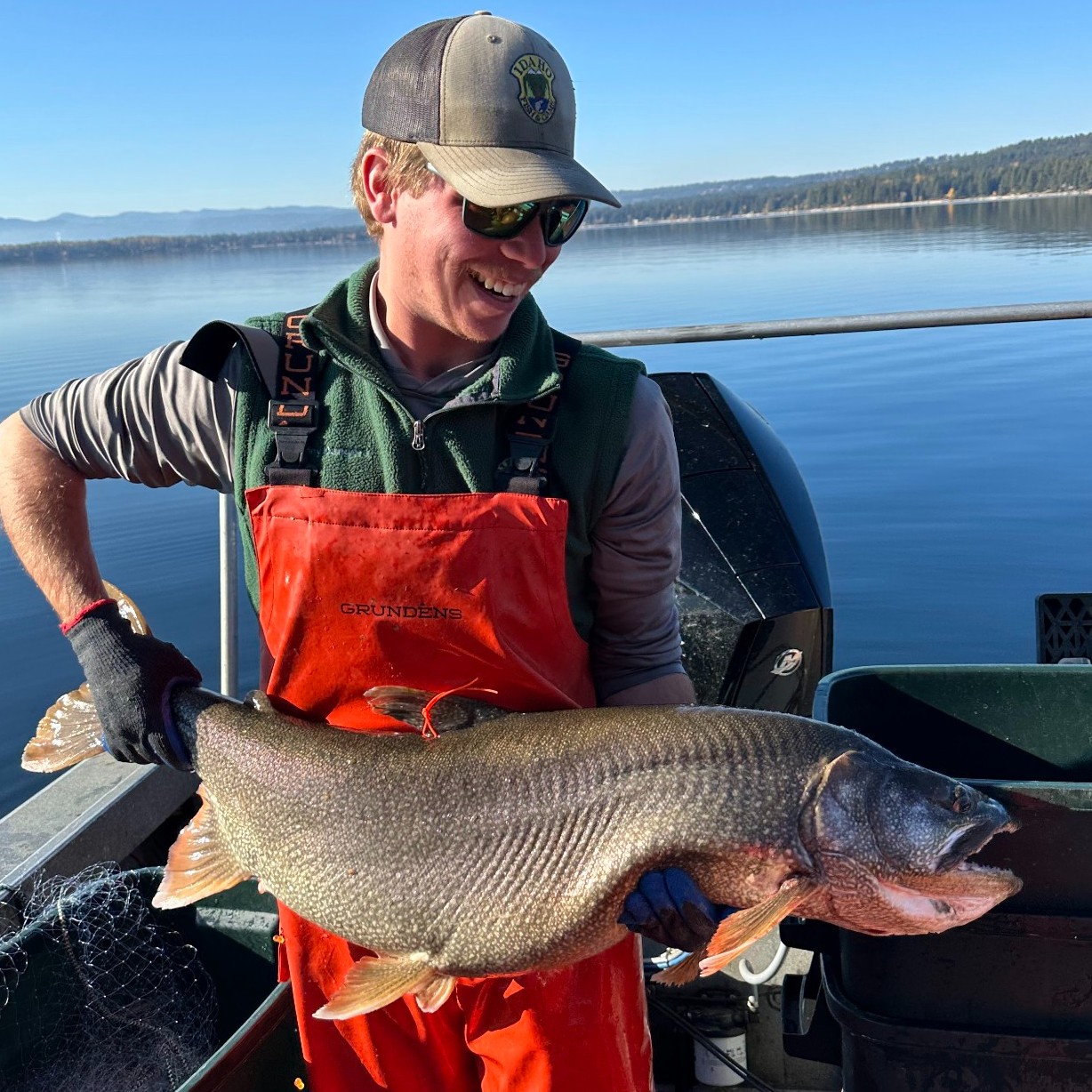

This week Kadie chats with Anthony Dangora, a regional fisheries biologist from Idaho Fish and Game (IDFG) out of McCall, Idaho. In this episode, we cover Anthony's early focus on larval otoliths and salmonids, his career path thus far, and also talk about many of the cool seasonal opportunities available out of IDFG. Check it out! Main point: Be open and willing to take on new experiences. If you'd like to reach out to Anthony, you can find him at anthony.dangora@idfg.idaho.gov Get in touch with us! The Fisheries Podcast is on Facebook, Twitter, and Instagram: @FisheriesPod Become a Patron of the show: https://www.patreon.com/FisheriesPodcast Buy podcast shirts, hoodies, stickers, and more: https://teespring.com/stores/the-fisheries-podcast-fan-shop Thanks as always to Andrew Gialanella for the fantastic intro/outro music. The Fisheries Podcast is a completely independent podcast, not affiliated with a larger organization or entity. Reference to any specific product or entity does not constitute an endorsement or recommendation by the podcast. The views expressed by guests are their own and their appearance on the program does not imply an endorsement of them or any entity they represent. Views and opinions expressed by the hosts are those of that individual and do not necessarily reflect the view of any entity with those individuals are affiliated in other capacities (such as employers).


This week Katelyn chats with Luc LaRochelle, a PhD student in the Fish Ecology and Conservation Physiology Lab at Carleton University. Luc talks about his research on maternal effects, assessing post-release behaviour, and the importance of catch-and-release angling. Main point: Try not to always take hero shots and get that fish back in the water. Get in touch with us! The Fisheries Podcast is on Facebook, Twitter, and Instagram: @FisheriesPod Become a Patron of the show: https://www.patreon.com/FisheriesPodcast Buy podcast shirts, hoodies, stickers, and more: https://teespring.com/stores/the-fisheries-podcast-fan-shop Thanks as always to Andrew Gialanella for the fantastic intro/outro music. The Fisheries Podcast is a completely independent podcast, not affiliated with a larger organization or entity. Reference to any specific product or entity does not constitute an endorsement or recommendation by the podcast. The views expressed by guests are their own and their appearance on the program does not imply an endorsement of them or any entity they represent. Views and opinions expressed by the hosts are those of that individual and do not necessarily reflect the view of any entity with those individuals are affiliated in other capacities (such as employers).
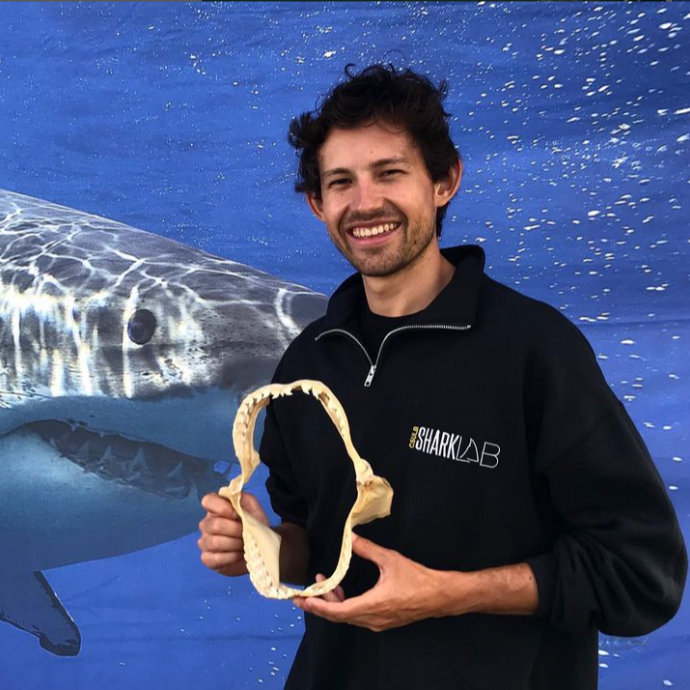

In this week's episode, Elise (IG: @elise_the_mermaid) chats with Costa Rican researcher and Cal State Long Beach Master's student Sergio Madrigal Mora (IG: @sergiomm_77). They discuss how he has juggled coursework in California and field work in Costa Rica, the importance of building international research collaborations, and his preliminary research on the Pacific Nurse shark (Ginglymostoma unami, described 2015) in Santa Elena Bay. This shark is not currently a target species in Costa Rican fisheries, but are often caught in coastal fisheries throughout their distribution. Sergio's research can provide baseline knowledge from a relatively undisturbed population, which has the potential to strengthen management and conservation approaches for the species throughout its range. Main point: Humans are one small part of a larger ecosystem ResearchGate: https://www.researchgate.net/profile/Sergio-Madrigal-Mora CSULB Shark Lab: https://www.csulb.edu/shark-lab Get in touch with us! The Fisheries Podcast is on Facebook, Twitter, and Instagram: @FisheriesPod Become a Patron of the show: https://www.patreon.com/FisheriesPodcast Buy podcast shirts, hoodies, stickers, and more: https://teespring.com/stores/the-fisheries-podcast-fan-shop Thanks as always to Andrew Gialanella for the fantastic intro/outro music. The Fisheries Podcast is a completely independent podcast, not affiliated with a larger organization or entity. Reference to any specific product or entity does not constitute an endorsement or recommendation by the podcast. The views expressed by guests are their own and their appearance on the program does not imply an endorsement of them or any entity they represent. Views and opinions expressed by the hosts are those of that individual and do not necessarily reflect the view of any entity with those individuals are affiliated in other capacities (such as employers).
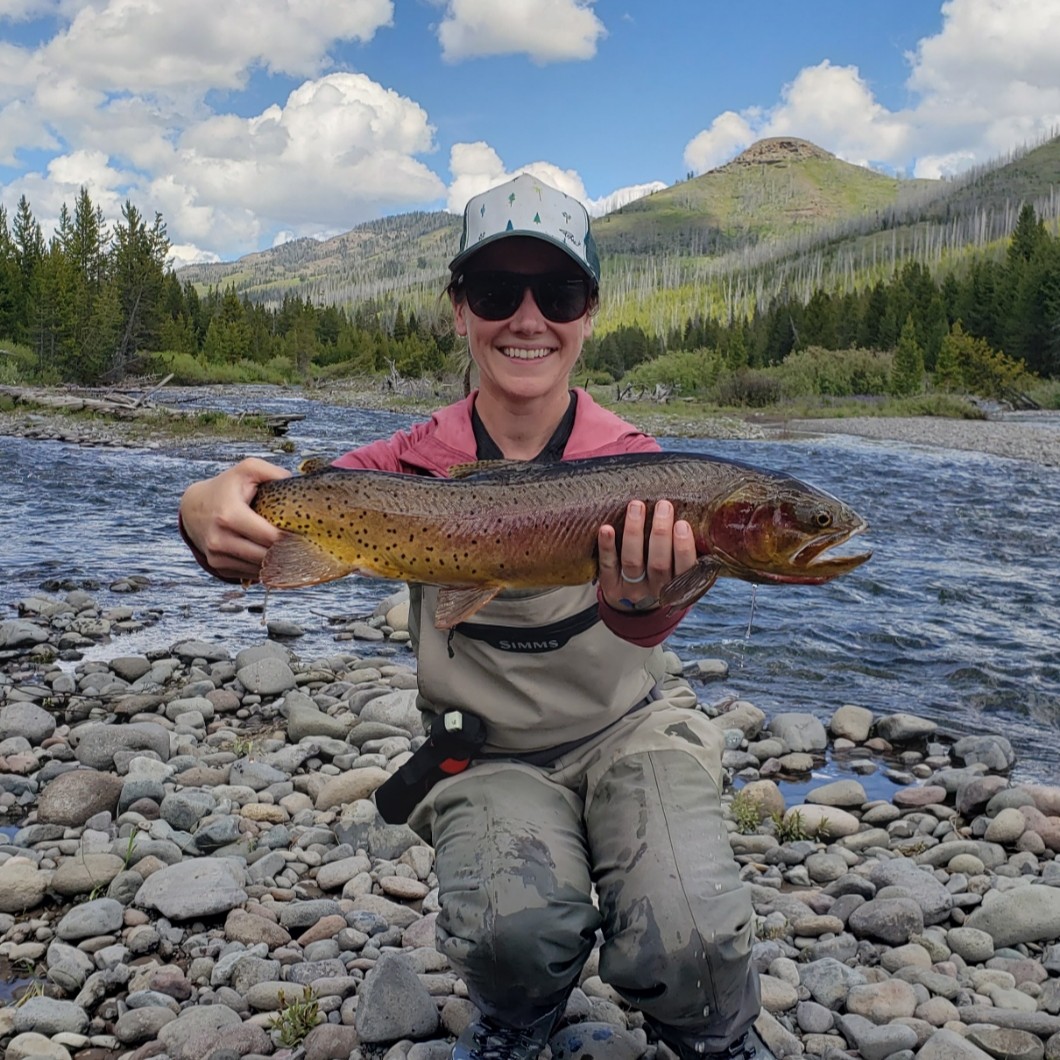

This week Kadie chats with Michelle Briggs, a Ph.D. student in the Montana Cooperative Fisheries Research Unit out of Montana State University. Michelle received her B.S. from the University of Southern California and her M.S. from Montana State University. Her research focuses on the population dynamics and genetic structure of Yellowstone cutthroat trout in Yellowstone Lake. We chat about Michelle's career path to date and then we focus in on her experiences working in/around Yellowstone National Park, including scuba diving for invertebrate samples and extensive backpacking trips for genetics samples. Main points: take time to enjoy yourself and remember why you started your work in the first place! If you'd like to get in touch with Michelle you can reach her at michelle.briggs1@montana.edu. Get in touch with us! The Fisheries Podcast is on Facebook, Twitter, and Instagram: @FisheriesPod Become a Patron of the show: https://www.patreon.com/FisheriesPodcast Buy podcast shirts, hoodies, stickers, and more: https://teespring.com/stores/the-fisheries-podcast-fan-shop Thanks as always to Andrew Gialanella for the fantastic intro/outro music. The Fisheries Podcast is a completely independent podcast, not affiliated with a larger organization or entity. Reference to any specific product or entity does not constitute an endorsement or recommendation by the podcast. The views expressed by guests are their own and their appearance on the program does not imply an endorsement of them or any entity they represent. Views and opinions expressed by the hosts are those of that individual and do not necessarily reflect the view of any entity with those individuals are affiliated in other capacities (such as employers).
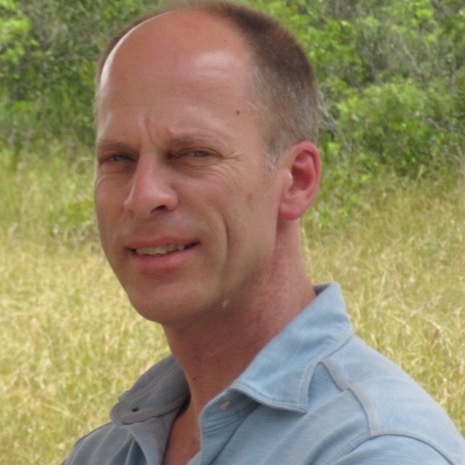

Tune in to hear about triploid and single-sex aquaculture fish populations, how we can genetically safeguard against fish farm escapees, the ongoing concerns around aquatic invasive in New Brunswick, and the notion of animal sentience which connects to animal ethics. Remember: we must all make an effort to understand the science around us. Get in touch with us! The Fisheries Podcast is on Facebook, Twitter, and Instagram: @FisheriesPod Become a Patron of the show: https://www.patreon.com/FisheriesPodcast Buy podcast shirts, hoodies, sticker, and more: https://teespring.com/stores/the-fisheries-podcast-fan-shop Thanks as always to Andrew Gialanella for the fantastic intro/outro music. The Fisheries Podcast is a completely independent podcast, not affiliated with a larger organization or entity. Reference to any specific product or entity does not constitute an endorsement or recommendation by the podcast. The views expressed by guests are their own and their appearance on the program does not imply an endorsement of them or any entity they represent. Views and opinions expressed by the hosts are those of that individual and do not necessarily reflect the view of any entity with those individuals are affiliated in other capacities (such as employers).


This week Katelyn chats with Morgan Piczak, a Ph.D. candidate in the Fish Ecology and Conservation Physiology Laboratory at Carleton University. Morgan talks about her unique journey into fisheries research, assessing the effectiveness of habitat restoration efforts in Toronto Harbour, and tagging salmon in Norway. Main point: Stop working towards deadlines. Get in touch with us! The Fisheries Podcast is on Facebook, Twitter, and Instagram: @FisheriesPod Become a Patron of the show: https://www.patreon.com/FisheriesPodcast Buy podcast shirts, hoodies, sticker, and more: https://teespring.com/stores/the-fisheries-podcast-fan-shop Thanks as always to Andrew Gialanella for the fantastic intro/outro music. The Fisheries Podcast is a completely independent podcast, not affiliated with a larger organization or entity. Reference to any specific product or entity does not constitute an endorsement or recommendation by the podcast. The views expressed by guests are their own and their appearance on the program does not imply an endorsement of them or any entity they represent. Views and opinions expressed by the hosts are those of that individual and do not necessarily reflect the view of any entity with those individuals are affiliated in other capacities (such as employers).
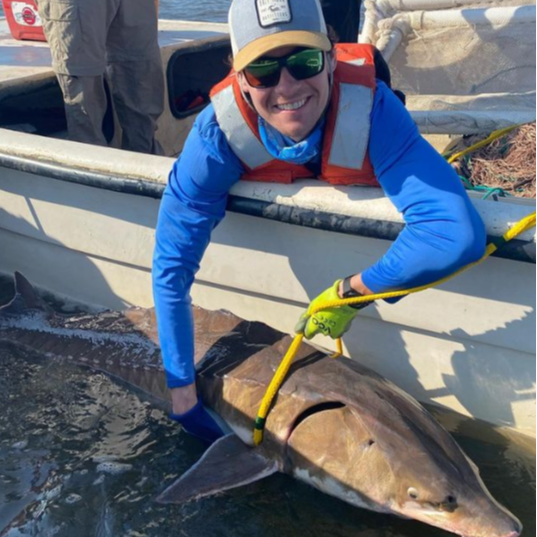

This week, Elise (IG: @elise_the_mermaid) sits down with her good friend Joey Nolan (IG: @_joeynolan), a Master's student at the University of Georgia Athens. They cover all things sturgeon, the challenges of doing research during COVID, and the power of pivoting as they discuss Joey's less-than-linear road to graduate school. Main takeaway: Be open to unexpected opportunities! Get in touch with us! The Fisheries Podcast is on Facebook, Twitter, and Instagram: @FisheriesPod Become a Patron of the show: https://www.patreon.com/FisheriesPodcast Buy podcast shirts, hoodies, sticker, and more: https://teespring.com/stores/the-fisheries-podcast-fan-shop Thanks as always to Andrew Gialanella for the fantastic intro/outro music. The Fisheries Podcast is a completely independent podcast, not affiliated with a larger organization or entity. Reference to any specific product or entity does not constitute an endorsement or recommendation by the podcast. The views expressed by guests are their own and their appearance on the program does not imply an endorsement of them or any entity they represent. Views and opinions expressed by the hosts are those of that individual and do not necessarily reflect the view of any entity with those individuals are affiliated in other capacities (such as employers).
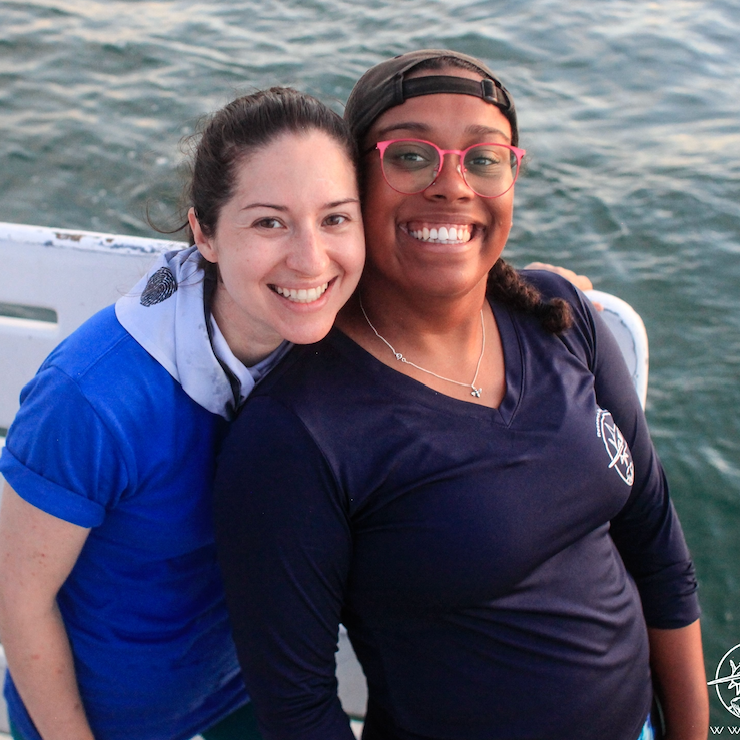

This week Kadie interviews the hosts of the popular Sharkpedia podcast, Meghan Holst and Amani Webber-Schultz. Meghan is a third-year PhD student at UC Davis in the Graduate Group of Ecology where she is pursuing a PhD in ecology studying the broadnose sevengill shark in San Francisco Bay. Meghan is equally passionate about conservation science as she is about social justice and science communication work. In 2021, Meghan co-founded the 501(c)3 non-profit, Minorities In Aquarium & Zoo Science (MIAZS), and now maintains an executive directorship pursuing the mission to advance aquarium and zoo science by diversifying the professionals and their perspectives within it. Amani is a PhD student at the New Jersey Institute of Technology studying shark functional morphology and swimming kinematics. She is a co-founder and the Chief Financial Officer for the 501(c)3 non-profit Minorities in Shark Sciences, which is dedicated to fundraising for and creating a welcoming space for gender minorities of color in shark sciences. Outside of school, Amani also works as a research assistant at the Field School in Miami where she assists with the Intro to Shark Research Skills course. Meghan and Amani co-host a science podcast, Sharkpedia, where the primary authors of elasmobranch research are interviewed to communicate their science and strategies to the general public. Listen in to hear about where Amani and Meghan's love of sharks began, their perspectives on running non-profits, and some of the upcoming episodes they have planned for the Sharkpedia Podcast! Main point(s): Sharks are important, we should appreciate them more than we fear them & science doesn't need to be a competition. You can follow Sharkpedia on Instagram @SharkpediaPod https://www.instagram.com/sharkpediapod/, Spotify https://open.spotify.com/show/5KhDcYMxVEK5Mhy1SS9zSB?si=c22bc48c01194127, Apple Podcasts https://podcasts.apple.com/us/podcast/sharkpedia/id1565793030, or wherever you regularly listen to podcasts! You can reach Meghan and Amani on various social media platforms @megholst https://www.instagram.com/megholst/ and @curly_biologist https://www.instagram.com/curly_biologist/, respectively. Find out more about MISS and MIAZS from their websites, misselasmo.org https://www.misselasmo.org/ and miazs.org https://www.miazs.org/. Get in touch with us! The Fisheries Podcast is on Facebook, Twitter, and Instagram: @FisheriesPod Become a Patron of the show: https://www.patreon.com/FisheriesPodcast Buy podcast shirts, hoodies, stickers, and more: https://teespring.com/stores/the-fisheries-podcast-fan-shop Thanks as always to Andrew Gialanella for the fantastic intro/outro music. The Fisheries Podcast is a completely independent podcast, not affiliated with a larger organization or entity. Reference to any specific product or entity does not constitute an endorsement or recommendation by the podcast. The views expressed by guests are their own and their appearance on the program does not imply an endorsement of them or any entity they represent. Views and opinions expressed by the hosts are those of that individual and do not necessarily reflect the view of any entity with those individuals are affiliated in other capacities (such as employers).
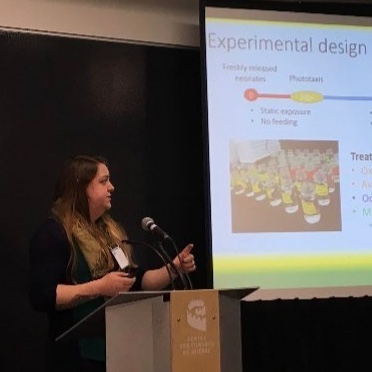

Join Reid as she sits down with Dr. Danielle Philibert, aquatic toxicologist with the Huntsman Marine Science Centre, to discuss all things oil and contaminant related. We chat about work-life balance, career development, the true value of a genuinely fantastic team, and of course, some incredibly cool research. Remember: there are profound interdisciplinary applications of research everywhere, if you are willing to look for them. Get in touch with us! The Fisheries Podcast is on Facebook, Twitter, and Instagram: @FisheriesPod Become a Patron of the show: https://www.patreon.com/FisheriesPodcast Buy podcast shirts, hoodies, sticker, and more: https://teespring.com/stores/the-fisheries-podcast-fan-shop Thanks as always to Andrew Gialanella for the fantastic intro/outro music. The Fisheries Podcast is a completely independent podcast, not affiliated with a larger organization or entity. Reference to any specific product or entity does not constitute an endorsement or recommendation by the podcast. The views expressed by guests are their own and their appearance on the program does not imply an endorsement of them or any entity they represent. Views and opinions expressed by the hosts are those of that individual and do not necessarily reflect the view of any entity with those individuals are affiliated in other capacities (such as employers).
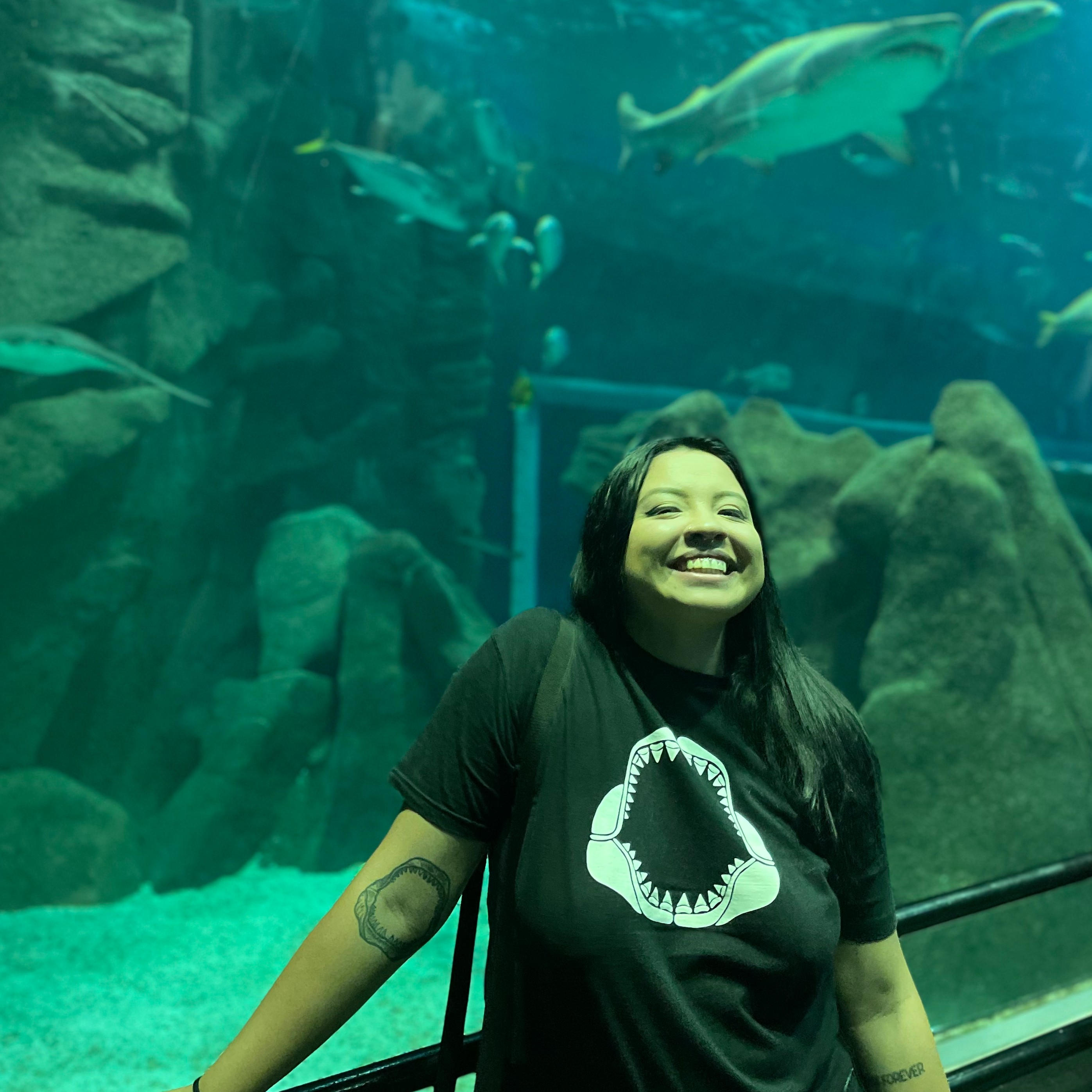

You're in for a treat this week as Elise (IG: @elise_the_mermaid) sits down with Brazilian shark and ray biologist Ingrid Hyrycena! They talk about her science communication platform @ProjetoTubarao, the incredible relationship she has built with her local community of fishers, her first visit to the US, and some of the challenges she faces as a researcher from Brazil. Projeto Tubarão (Shark Project) IG: @projetotubarao https://instagram.com/projetotubarao Personal Instagram: @pimdi https://instagram.com/pimdi Twitter: @ingridhyrycena https://twitter.com/IngridHyrycena * * * Get in touch with us! The Fisheries Podcast is on Facebook, Twitter, and Instagram: @FisheriesPod Become a Patron of the show: https://www.patreon.com/FisheriesPodcast Buy podcast shirts, hoodies, stickers, and more: https://teespring.com/stores/the-fisheries-podcast-fan-shop Thanks as always to Andrew Gialanella for the fantastic intro/outro music. The Fisheries Podcast is a completely independent podcast, not affiliated with a larger organization or entity. Reference to any specific product or entity does not constitute an endorsement or recommendation by the podcast. The views expressed by guests are their own and their appearance on the program does not imply an endorsement of them or any entity they represent. Views and opinions expressed by the hosts are those of that individual and do not necessarily reflect the view of any entity with those individuals are affiliated in other capacities (such as employers).
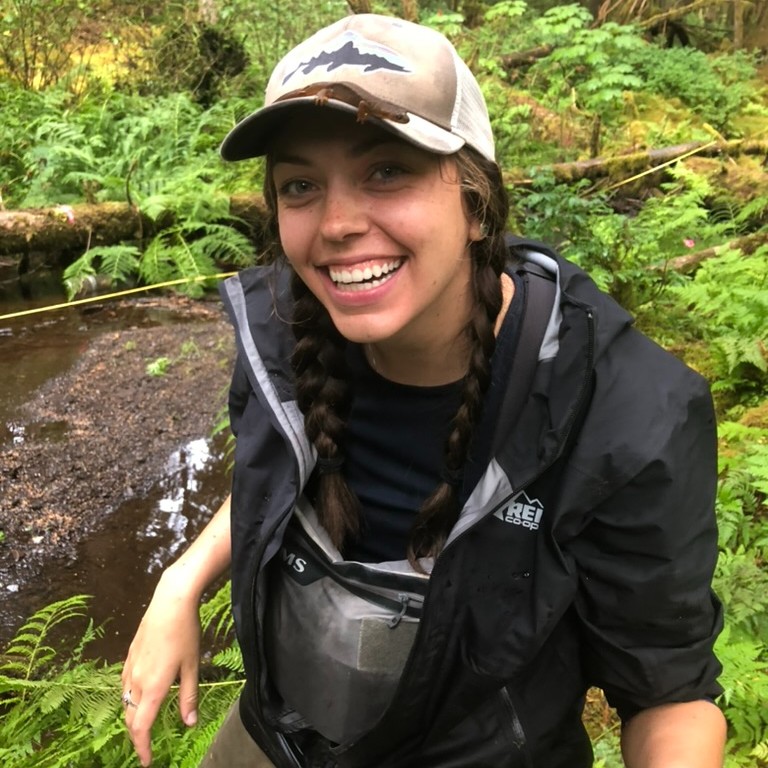

This week Kadie laughs and cries through this interview with Katie Furey, a good friend and fellow graduate student in the Ecology Department at Montana State University. In this episode, we chat about Katie's career path, her current research investigating the feeding ecology and trophic relationships of salmonids in Georgetown Lake, MT, as well as her experience with rheumatoid arthritis, anxiety, and ADHD. While this episode is on the longer side and contains more giggles (and tears) than average, we cover some really crucial topics about the representation of chronic illness and disabilities in fisheries and the importance of health insurance for graduate students. Main point: Prioritize finding joy, silliness, and Pacific spiny lumpsucker moments in your life! (And go to therapy if you can afford it!) Find the famed 2Fish2Fureyous video here https://www.instagram.com/p/CgC0BDDpikA/?utm_source=ig_web_copy_link&igshid=MzRlODBiNWFlZA==. You can get in touch with Katie on Instagram @fureyous https://www.instagram.com/fureyous/ or via email at kaitlyn.furey@student.montana.edu Get in touch with us! The Fisheries Podcast is on Facebook, Twitter, and Instagram: @FisheriesPod Become a Patron of the show: https://www.patreon.com/FisheriesPodcast Buy podcast shirts, hoodies, stickers, and more: https://teespring.com/stores/the-fisheries-podcast-fan-shop Thanks as always to Andrew Gialanella for the fantastic intro/outro music. The Fisheries Podcast is a completely independent podcast, not affiliated with a larger organization or entity. Reference to any specific product or entity does not constitute an endorsement or recommendation by the podcast. The views expressed by guests are their own and their appearance on the program does not imply an endorsement of them or any entity they represent. Views and opinions expressed by the hosts are those of that individual and do not necessarily reflect the view of any entity with those individuals are affiliated in other capacities (such as employers).


Listen to this week's episode to learn about seaweed aquaculture, kelp beer, and treating Parkinson's as Reid chats with Dr. Thierry Chopin. Remember: follow your passion and the rest will fall into place. Get in touch with us! The Fisheries Podcast is on Facebook, Twitter, and Instagram: @FisheriesPod Become a Patron of the show: https://www.patreon.com/FisheriesPodcast Buy podcast shirts, hoodies, sticker, and more: https://teespring.com/stores/the-fisheries-podcast-fan-shop Thanks as always to Andrew Gialanella for the fantastic intro/outro music. The Fisheries Podcast is a completely independent podcast, not affiliated with a larger organization or entity. Reference to any specific product or entity does not constitute an endorsement or recommendation by the podcast. The views expressed by guests are their own and their appearance on the program does not imply an endorsement of them or any entity they represent. Views and opinions expressed by the hosts are those of that individual and do not necessarily reflect the view of any entity with those individuals are affiliated in other capacities (such as employers).
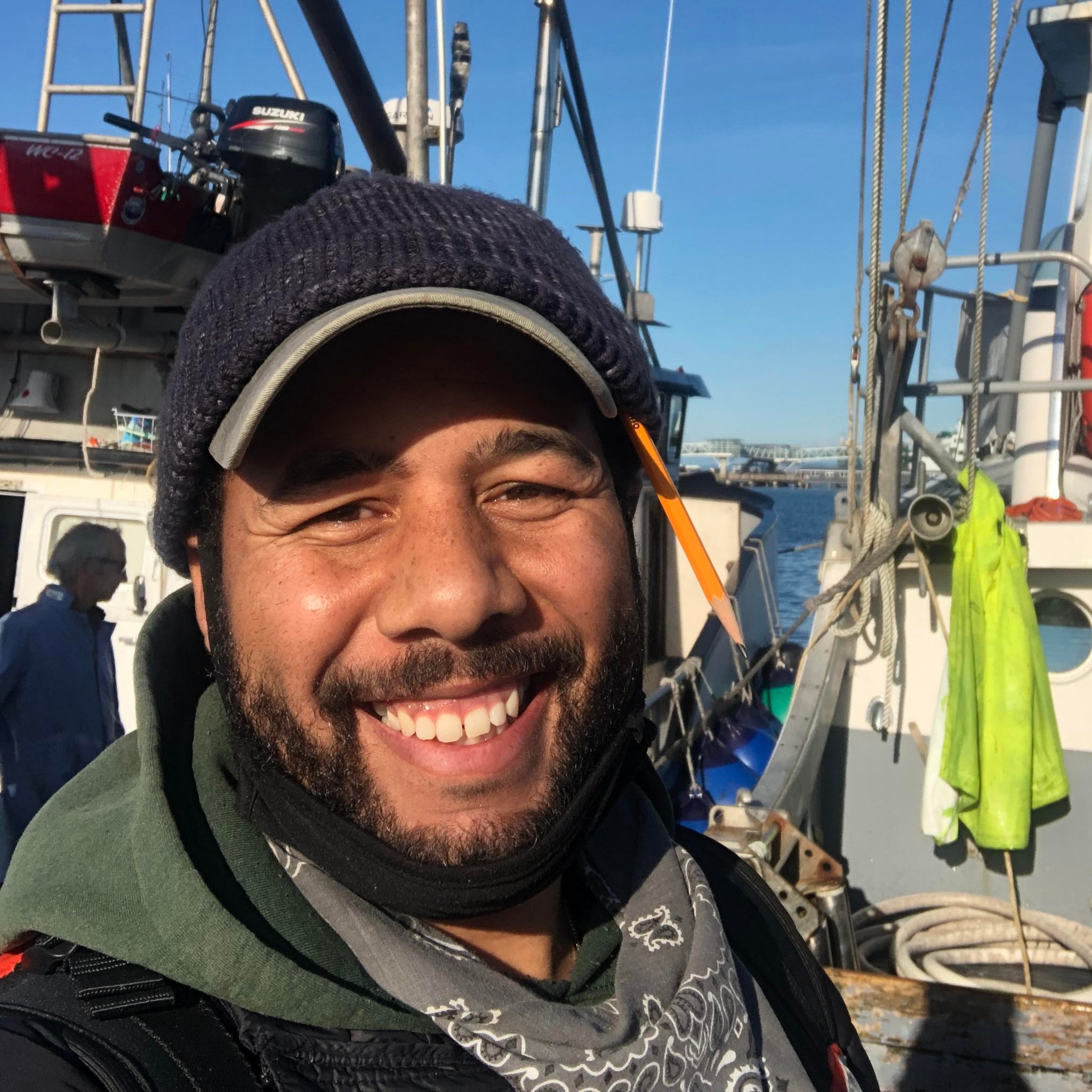

This week, Elise chats with Kwasi Addae, a Puget Sound Commercial Salmon Monitoring Biologist for Washington Department of Fish and Wildlife! They talk about Kwasi's work in fisheries and public outreach, the importance of representation in STEM, what it's like to work collaboratively with indigenous fisheries managers, and more!
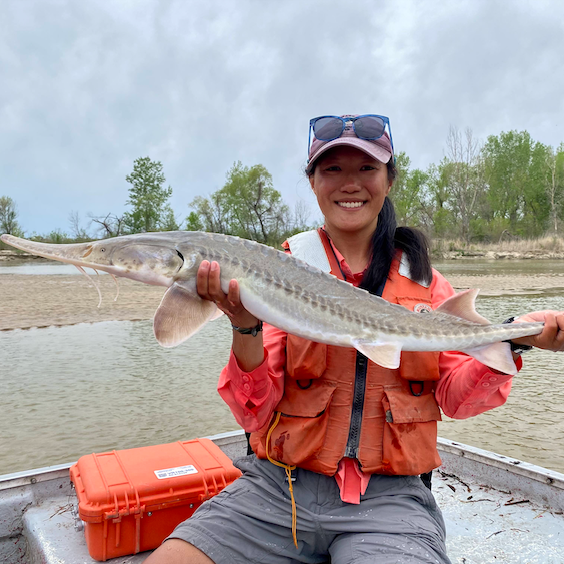

This week Kadie chats with Jenna Ruoss, a Ph.D. candidate at the University of Nebraska Lincoln. Hailing from Pennsylvania, Jenna grew up hiking, kayaking, looking for critters in streams, and playing outside in the woods in her backyard. Throughout this episode, we chat about how her love of parasites which developed during her undergraduate degree led her to a career in fisheries and her current work studying the endangered Pallid Sturgeon in the lower Platte River, Nebraska. Main point: Make sure you're happy. If you'd like to get ahold of Jenna, you can find her on Twitter at @jpruoss. https://twitter.com/jpruoss Get in touch with us! The Fisheries Podcast is on Facebook, Twitter, and Instagram: @FisheriesPod Become a Patron of the show: https://www.patreon.com/FisheriesPodcast Buy podcast shirts, hoodies, stickers, and more: https://teespring.com/stores/the-fisheries-podcast-fan-shop Thanks as always to Andrew Gialanella for the fantastic intro/outro music. The Fisheries Podcast is a completely independent podcast, not affiliated with a larger organization or entity. Reference to any specific product or entity does not constitute an endorsement or recommendation by the podcast. The views expressed by guests are their own and their appearance on the program does not imply an endorsement of them or any entity they represent. Views and opinions expressed by the hosts are those of that individual and do not necessarily reflect the view of any entity with those individuals are affiliated in other capacities (such as employers).
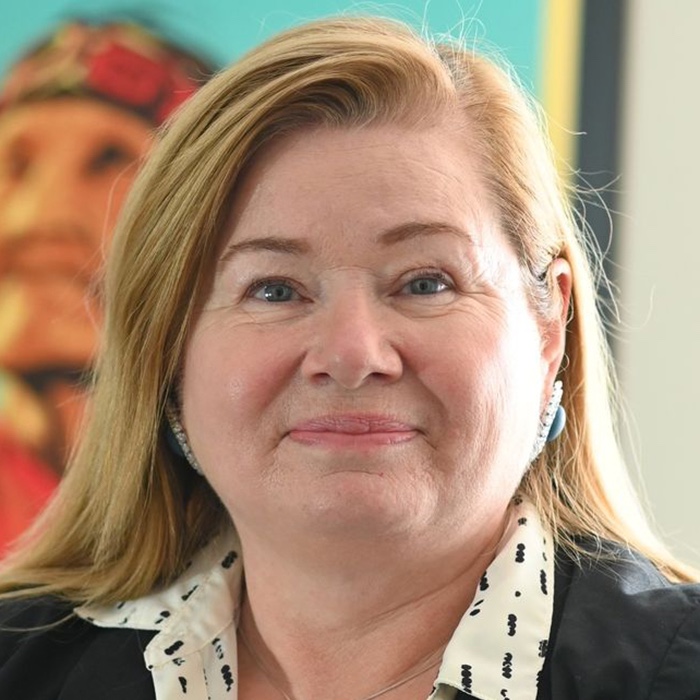

Tune in this week as Reid sits down with Rosalie Francis, a Mi'kmaw lawyer who specializes in Indigenous issues including fisheries. Listen to discussions about the 2020 Lobster Dispute on the eastern coasts of Canada, Aboriginal and Treaty Rights, Indigenous capacity to self-govern, and how the United Nations Declaration on the Rights of Indigenous Peoples (UNDRIP) affects communities, Nations, and Peoples. Remember: we must all attempt to understand Indigenous perspectives. Get in touch with us! The Fisheries Podcast is on Facebook, Twitter, and Instagram: @FisheriesPod Become a Patron of the show: https://www.patreon.com/FisheriesPodcast Buy podcast shirts, hoodies, sticker, and more: https://teespring.com/stores/the-fisheries-podcast-fan-shop Thanks as always to Andrew Gialanella for the fantastic intro/outro music. The Fisheries Podcast is a completely independent podcast, not affiliated with a larger organization or entity. Reference to any specific product or entity does not constitute an endorsement or recommendation by the podcast. The views expressed by guests are their own and their appearance on the program does not imply an endorsement of them or any entity they represent. Views and opinions expressed by the hosts are those of that individual and do not necessarily reflect the view of any entity with those individuals are affiliated in other capacities (such as employers).